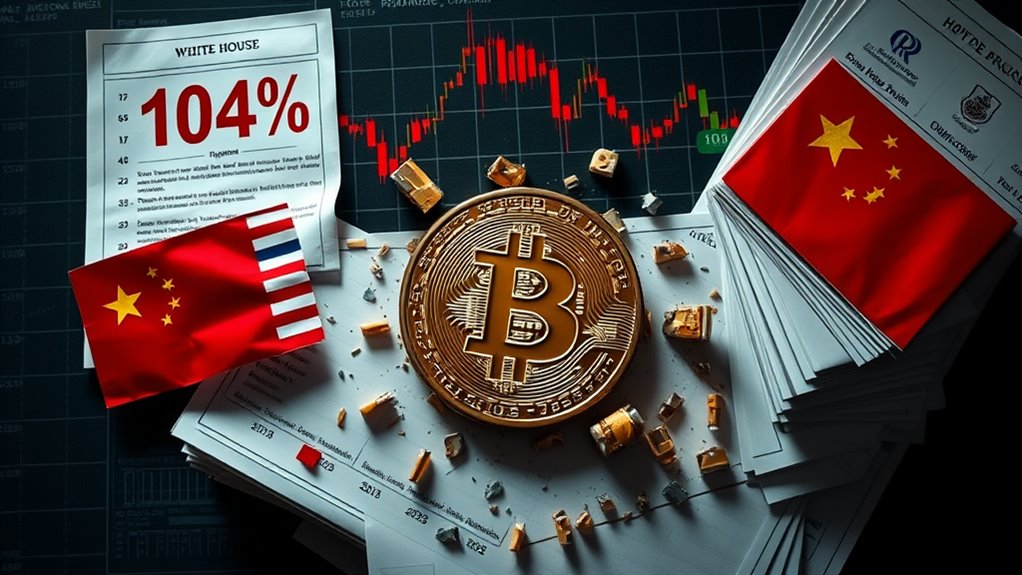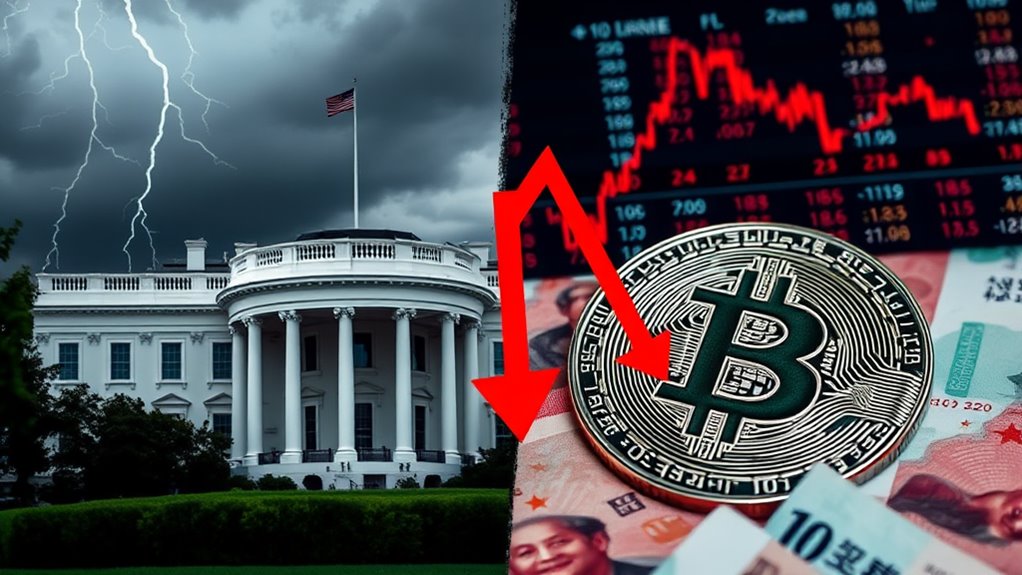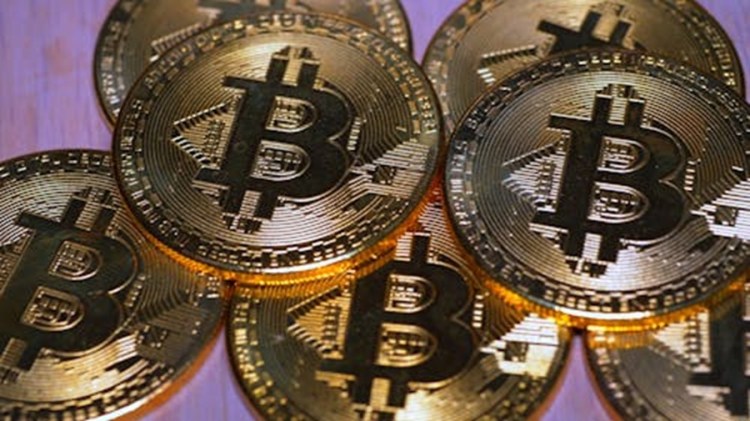White House’s 104% China Tariff Bombshell Crushes Bitcoin’s Fleeting Recovery
Note: This post may contain affiliate links, and we may earn a commission (with No additional cost for you) if you make a purchase via our link. See our disclosure for more info. The crypto world is constantly changing. This content is for informational purposes only and not financial, legal, or professional advice So, please verify the info on the cryptocurrency provider’s websites.

As the White House moves to impose a staggering 104% tariff on Chinese imports next April, the cryptocurrency market is feeling the shock waves. The sweeping trade measure, set to take effect at 12:01 a.m. EDT on April 9, 2025, has sent Bitcoin prices into a nosedive—from a promising $109,000 to a sobering $77,657. That's one heck of a haircut for crypto investors.
The tariffs represent a significant escalation in ongoing trade tensions. They're supposedly a response to China's 34% import duty on American exports. Not to be outdone, the U.S. decided to triple that figure and then some. Because why negotiate when you can just slap on bigger numbers?
Trade tensions spiral as America responds to China's 34% duty by more than tripling it. Diplomacy by calculator.
China isn't taking this lying down. Their Commerce Ministry called the U.S. move “mistake on top of a mistake”—diplomatic speak for “are you kidding me?” They've promised to “fight to the end” against these measures and warned of additional countermeasures if America doesn't back off. Premier Li Qiang has confidently stated that China can offset economic impacts despite the aggressive U.S. measures. President Trump has stated that the administration will cease all trade negotiations with China while pursuing deals with other countries.
Trade war, round whatever-we're-at-now, has officially begun.
The cryptocurrency market, which had been riding high on what analysts dubbed the “Trump rally,” now finds its gains reduced to a mere 15% after the crash. Ethereum wasn't spared either, tumbling to $1,504. Traders who were celebrating just days ago are now checking their portfolios through their fingers.
These tariffs aren't isolated to China. They're actually part of a broader 10% tariff applied to all countries since April 5, with the administration targeting nations carrying the largest trade deficits with the U.S. The White House is wielding the International Emergency Economic Powers Act to force what it calls “reciprocal trade terms” with partners.
The sudden market reaction highlights crypto's continuing vulnerability to global economic policy shifts. For all the talk of digital assets being hedges against traditional market turmoil, Bitcoin and its peers seem to catch pneumonia whenever the global economy sneezes.
Even gold—the original safe haven—declined as risk sentiment soured across markets.










